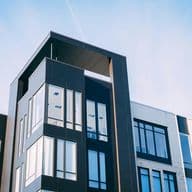
- 3 min read
What to ask or check before buying a house?

Choosing the best property to live in is a difficult decision that requires time and careful thought, as rushing the process can lead to regrets later on. To avoid this situation, it’s best to gather all the necessary information before finalizing the transaction.
But what should you ask? What mustn’t you forget? What information is most relevant? What should you check? In this article, we’ll outline what to ask and look for before buying a house, focusing on the property itself, the surroundings, and expenses, to help you make the right decision.
Questions about the property
The first step is to ask questions related to the property’s condition. This will help you quickly determine if the house is worth considering or if it has any issues that might make you rule it out. Additionally, this information can assist you in negotiating the price.
Here is a list of questions you can ask to better understand the property’s condition:
Why is the house being sold?
Asking the reason for selling is perfectly normal. This can help you uncover whether there’s a specific issue you should take into account. For example, the seller might be offloading the property because it requires renovations they’re unwilling to complete. This could indicate the need for repairs and provide leverage for price negotiations.
How long has it been on the market?
Knowing this information can work to your advantage. If the property has been listed for six months or more, the seller may be more willing to negotiate and offer a discount, especially if they’re in a hurry to sell.
How many visits has it had?
The number of viewings can indicate whether you need to act quickly to secure the property. A home with high interest may attract multiple buyers, signaling strong demand.
What is the total built and usable area?
Although official documents, such as the nota simple, outline the property’s square footage, it’s helpful to ask directly to get a quick answer and assess whether it meets your requirements. It also gives you insight into how the price compares in the current market.
What is the condition of the property?
Before starting the tour, it’s common to ask about the current state of the property. For instance, you might inquire about its structural integrity or age. These details will help determine whether the house needs renovations or if it’s already been upgraded.
What about the building?
If the property is part of a multi-owner building or apartment complex, it’s equally important to ask about the overall condition of the building. In the case of a homeowners’ association, you may want to check the facade, elevator, or shared spaces, as their condition could lead to future assessments or fees.
If the building is older, it’s also worth confirming whether it has passed the ITE (Technical Building Inspection) for structural safety or the IEE (Building Evaluation Report), which covers safety, sanitation, accessibility, and energy efficiency.
Are there private amenities for owners?
Some buildings include private communal areas maintained through shared expenses. Features such as a pool, parking space, or paddle court can increase the property’s value.
If these amenities are available, it’s a good idea to visit them and evaluate their condition.
Does it have an Energy Efficiency Certificate?
One of the key factors to ask about when buying a home is the Energy Efficiency Certificate. This document provides details about the energy savings generated by the home’s features, such as windows, heating systems, and insulation.
Moreover, according to Royal Decree 235/2013, buyers and tenants must have this certificate before completing the transaction.
When working with a reputable real estate agency like Engel & Völkers, you can enjoy the peace of mind of having all documentation prepared. A qualified agent will supply all the information you need, clear up any doubts, and make the process stress-free.
When was the last renovation?
A house that hasn’t been renovated in a long time likely requires maintenance and repairs in the future.
Additionally, some rooms may have outdated décor, such as tiles or kitchen furniture, that you might want to update. Whether it’s a matter of maintenance or aesthetics, the need for renovations can provide leverage to negotiate a better price.
What is the orientation of the property?
One important question to ask before buying a house is its orientation. The position of the property determines how natural light will flow throughout different times of the year.
What type of energy supply is used?
It’s important to know what type of energy supplies are required, such as for appliances or hot water. This information will help determine whether the home’s systems need upgrading, which could also affect price negotiations.
On the other hand, if the property already has updated and energy-efficient systems, this is a valuable feature that saves effort and money while justifying the property’s price.
Are the furnishings included?
Another key question to ask before buying a house is whether it comes furnished, especially if it appears that way during your visit. Furnishings can increase the property’s value, so it’s worth knowing if they are included or if you can negotiate their removal.
Questions about expenses
Asking about expenses before buying a house can save you from unexpected costs or unpleasant surprises in the future. A reliable real estate agency can provide easy access to this information.
Having guidance from a qualified real estate agent eliminates the need to worry about unknown terms or questions, as they can provide and explain all the necessary information.

Is the house up to date on payments?
Are there any debts attached to the property? Documents such as the nota simple can provide this information and more. It’s essential to confirm this detail so the current owner can settle any outstanding debts before the transaction.
Are there any pending assessments?
It’s important to know whether any community assessments are pending approval, as this can influence price negotiations.
What is the property tax (IBI, Impuesto sobre los Bienes Inmuebles)?
As a potential buyer, you have the right to know the annual property tax (IBI) costs, as these vary by property and location. This information will help you budget for future expenses.
What are the community fees?
If the property is part of a community, you’ll also need to know the recurring community fees. Understanding all ownership costs is essential, as they will become your responsibility once you purchase the property.
What are the utility costs?
Another crucial question involves utility costs, including electricity, water, and gas. As previously mentioned, being aware of these expenses will help you manage your personal finances accordingly.
Questions about the surroundings
What should you ask or observe about the surroundings before buying a property? It’s important to assess the location, as it cannot be changed, and it could influence your decision.
What is the neighborhood like?
Before moving to a new area, it’s useful to ask questions about the neighborhood. Is it a quiet residential area? Are there many neighbors? Does it have a lively atmosphere?
What services are available?
It’s important to know what services are offered in the area. If there are few amenities nearby, you may need frequent access to public transportation or a car. Depending on your needs, having services close by can play a significant role in your decision-making process.
Are there nearby transportation options?
If the property is in a remote area without access to public transportation, its value should reflect this, as you may need a car or professional services for commuting.
What about schools?
If you have children or plan to have them, you may want to ask about schools in the area before purchasing the property. Having schools nearby that meet your requirements can be a great advantage.
What are the neighbors like?
In addition to learning about the neighborhood, you may also want to inquire about the neighbors. You can ask the seller or real estate agent for insights.
Alternatively, you can take a walk around the area and speak directly with the neighbors. Establishing a good relationship with those living nearby is important for a harmonious living experience.
Questions about paperwork
Finally, there are other aspects related to paperwork that you should check before buying a home.
When can I move in?
Whether you’re in a hurry or not, it’s important to know the moving-in date so you can coordinate with the moving company. You may also be able to work out an arrangement with the seller to simplify the process.
When can we sign the contract?
This is another important question. Similar to the previous one, knowing the signing date can help you organize the move and complete the necessary paperwork.
As you can see, knowing what to ask and check before buying a house is crucial. It helps determine whether the price is reasonable, if negotiations are necessary, and whether you’re making the right choice.
Having this information is much easier when you work with a real estate agent to guide you through the process.
At Engel & Völkers, we advise and support our clients to ensure they don’t have to worry about anything, making the process of choosing their new home smooth and stress-free.
You may also be interested in
 How to organise a move step by step: checklist, procedures and essential tips
How to organise a move step by step: checklist, procedures and essential tips What the ITE is and why it’s key when buying or selling a property
What the ITE is and why it’s key when buying or selling a property Buying a second home: a complete guide to making the right decision
Buying a second home: a complete guide to making the right decision Tips before renting an apartment: everything you need to know before signing
Tips before renting an apartment: everything you need to know before signing Buying a house to work remotely in Spain: ideal areas, prices, and practical tips
Buying a house to work remotely in Spain: ideal areas, prices, and practical tips What is bare ownership and why are more and more investors considering it?
What is bare ownership and why are more and more investors considering it? From arriving in Spain to fulfilling a dream: Ali’s story and his new home
From arriving in Spain to fulfilling a dream: Ali’s story and his new home Step by step guide to buy a house in 2025 | Complete guide
Step by step guide to buy a house in 2025 | Complete guide
FOR MORE INFORMATION
Contact us



Engel & Völkers Spain
Avenida Diagonal 640, 6B
08017 Barcelona, España
Tel: +34 900 747 281